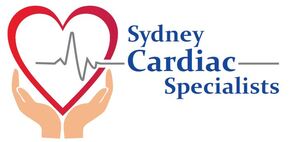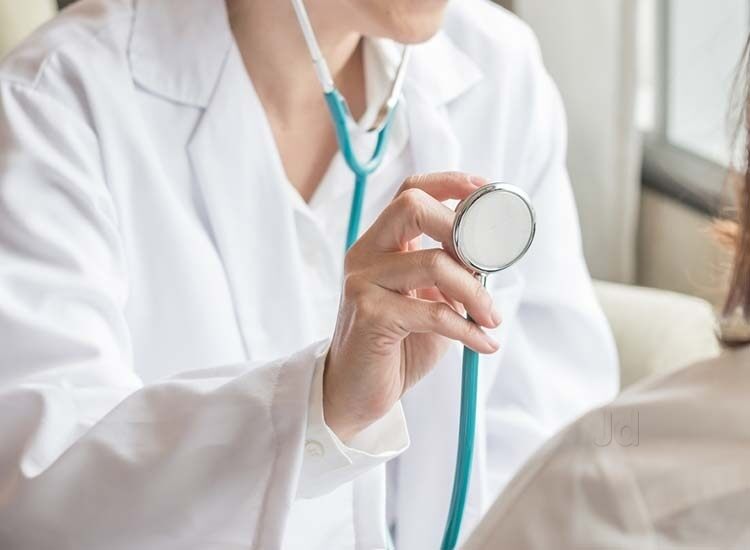Sydney Cardiac Specialists : Cardiology Consultation and Investigations
The Cardiologists at Sydney Cardiac Specialists offer a broad range of personalised clinical, diagnostic and interventional cardiology services for patients with known or suspected heart conditions
Consultation
|
This involves a discussion about your health and medical history. The doctor will speak to you about your specific cardiac issues, including current symptoms, personal risks and lifestyle habits that can contribute to these factors.
The consultation may involve addressing preventative issues such as diet, exercise, blood pressure control and cholesterol management. Any previously identified cardiovascular concerns will also be considered, along with all the options that may be explored. If further investigation via cardiac testing or a procedure is required, this will be discussed with you. |
On-Site Cardiology Tests
Electrocardiography (ECG)
An electrocardiogram, also known as an ECG, is a non-invasive diagnostic test that detects electrical activity in the heart. It is usually part of a routine physical exam and is commonly performed after patients have experienced heart attack symptoms including chest pain, shortness of breath and heart palpitations. An ECG produces a record of waves that relate to the electrical impulses that occur during each beat of a patient's heart.
An electrocardiogram, also known as an ECG, is a non-invasive diagnostic test that detects electrical activity in the heart. It is usually part of a routine physical exam and is commonly performed after patients have experienced heart attack symptoms including chest pain, shortness of breath and heart palpitations. An ECG produces a record of waves that relate to the electrical impulses that occur during each beat of a patient's heart.
This test is performed by attaching electrical wires, called electrodes, to the arms, legs and chest. The ECG will begin recording your heart's electrical activity, showing how quickly and regularly your heart beats, as well as any structural abnormalities in the chambers and thickness of the heart. It is crucial for patients to remain still during this test, as muscle movement may interfere with results. Abnormal results from an ECG may indicate signs of a heart condition, which should be further investigated.
Transthoracic Echocardiography
Transthoracic echocardiography is painless and non-invasive. A transducer that emits high-frequency sound waves is placed on the patient's chest to create images of the heart. In addition to detecting many other heart problems, echocardiograms can assess cardiac function and detect structural heart disease, valvular heart disease and heart failure.
Transthoracic echocardiography is painless and non-invasive. A transducer that emits high-frequency sound waves is placed on the patient's chest to create images of the heart. In addition to detecting many other heart problems, echocardiograms can assess cardiac function and detect structural heart disease, valvular heart disease and heart failure.
Stress echocardiography
A stress echocardiogram is a diagnostic test used to evaluate the strength of the heart muscle as it pumps blood throughout the body. By using ultrasound imaging, the stress echocardiogram detects and records any decrease in blood flow to the heart caused by narrowing of the coronary arteries. The test is administered in two parts: resting and with exercise. In both cases, the patient's blood pressure and heart rate are measured so that heart functioning at rest and during exercise can be compared. The ultrasound images enable the doctor to see whether any sections of the heart muscle are malfunctioning due to an inadequate supply of blood or oxygen.
A stress echocardiogram is a diagnostic test used to evaluate the strength of the heart muscle as it pumps blood throughout the body. By using ultrasound imaging, the stress echocardiogram detects and records any decrease in blood flow to the heart caused by narrowing of the coronary arteries. The test is administered in two parts: resting and with exercise. In both cases, the patient's blood pressure and heart rate are measured so that heart functioning at rest and during exercise can be compared. The ultrasound images enable the doctor to see whether any sections of the heart muscle are malfunctioning due to an inadequate supply of blood or oxygen.
- Preparing for a Stress Echocardiogram
Before undergoing a stress echocardiogram, patients should ask their doctors whether it is necessary to temporarily stop taking certain medications before the test. Patients should refrain from eating or drinking for at least 2 hours before the test and wear comfortable, loose-fitting clothing to the procedure. - The Stress Echocardiogram Procedure
Before the test begins, the patient will have electrodes placed at various locations on the chest, arms and legs to record electrical activity in the heart, and will be wearing a blood pressure cuff. The resting portion of the procedure is administered while the patient lies on the side with the left arm extended. The doctor moves an ultrasound transducer over the patient's chest. A special gel has been applied to enable the transducer to move smoothly and to transmit sound waves directly to the heart.
Exercise stress test:
An exercise stress test is used to evaluate how well your heart functions during physical activity. This non-invasive cardiac test can reveal problems with your heart that can go undetected because exercise makes your heart pump harder and faster than it otherwise normally would. Your doctor will ask you to exercise on a treadmill while they monitor your blood pressure, heart rhythm and ECG tracing.
An exercise stress test is used to evaluate how well your heart functions during physical activity. This non-invasive cardiac test can reveal problems with your heart that can go undetected because exercise makes your heart pump harder and faster than it otherwise normally would. Your doctor will ask you to exercise on a treadmill while they monitor your blood pressure, heart rhythm and ECG tracing.
24-48 hour Holter Monitoring
Heart arrhythmias occur when the electrical impulses that coordinate your heartbeats don't function properly, resulting in your heart beating irregularly, too quickly or too slowly. To diagnose a heart arrhythmia, your doctor will review your symptoms and perform cardiac tests that precisely monitor arrhythmias. This includes a 24 hour Holter monitor, which is a small, wearable device that keeps track of your heart rhythm for 24 hours while you go about your daily activities.
Heart arrhythmias occur when the electrical impulses that coordinate your heartbeats don't function properly, resulting in your heart beating irregularly, too quickly or too slowly. To diagnose a heart arrhythmia, your doctor will review your symptoms and perform cardiac tests that precisely monitor arrhythmias. This includes a 24 hour Holter monitor, which is a small, wearable device that keeps track of your heart rhythm for 24 hours while you go about your daily activities.
Ambulatory blood pressure
Blood pressure (BP) varies throughout the day and in response to emotion and physical activity.
A 24 Hour ambulatory BP monitor is a non-invasive device to measure blood pressure continuously throughout your usual daily activities.
Blood pressure (BP) varies throughout the day and in response to emotion and physical activity.
A 24 Hour ambulatory BP monitor is a non-invasive device to measure blood pressure continuously throughout your usual daily activities.

